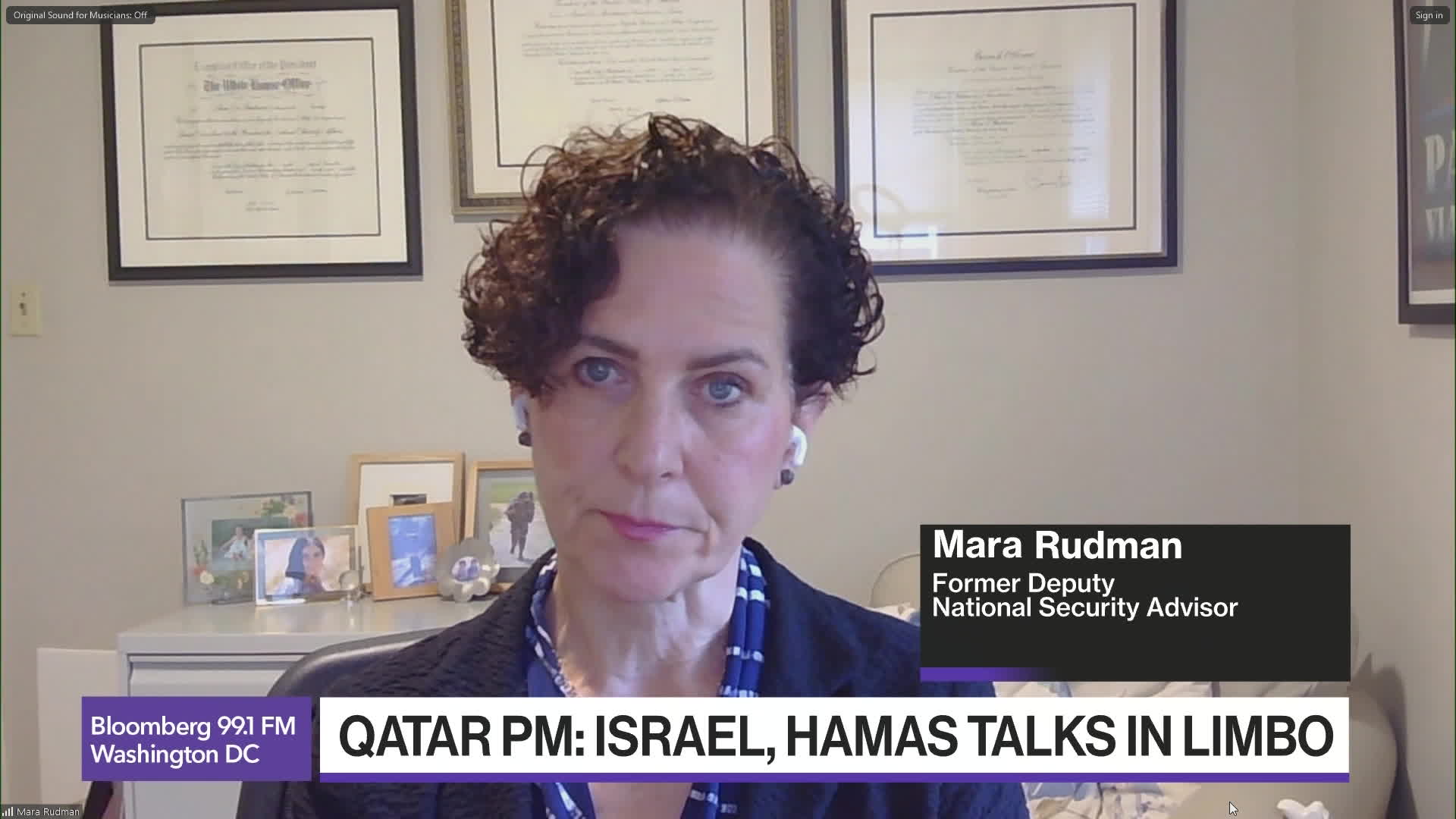Brexit's Gibraltar Problem: Talks Remain Deadlocked

Table of Contents
The Sovereignty Dispute: A Core Obstacle to Gibraltar Brexit Negotiations
The Gibraltar Brexit impasse is fundamentally rooted in a long-standing sovereignty dispute between the UK and Spain. Spain claims Gibraltar based on historical rights, citing its possession prior to the Treaty of Utrecht in 1713, which ceded Gibraltar to Britain. This historical claim forms the bedrock of Spain's position in the current negotiations. Conversely, Gibraltar's residents overwhelmingly favor remaining under British sovereignty, a preference consistently upheld by the UK government. This unwavering commitment to the Gibraltarian people's self-determination significantly complicates the negotiations. The unresolved sovereignty question casts a long shadow over all aspects of the Brexit talks, making it extremely difficult to find common ground on other issues.
- Spanish claims: Based on historical rights predating the Treaty of Utrecht.
- Gibraltar's preference: Overwhelming support for continued British sovereignty.
- UK's commitment: Upholding the wishes of Gibraltar's residents is paramount.
- Impact on negotiations: Sovereignty remains the biggest stumbling block to a comprehensive agreement.
Economic Implications of the Gibraltar Brexit Impasse
The lack of progress in the Gibraltar Brexit negotiations carries significant economic consequences for the territory. The free flow of people and goods across the border with Spain has been a cornerstone of Gibraltar's economy. The introduction of stricter border controls following Brexit has already negatively impacted cross-border trade and tourism, two vital pillars of the Gibraltarian economy.
- Border controls: Increased bureaucracy and delays are harming cross-border trade and tourism.
- EU single market access: Loss of frictionless access to the EU single market threatens Gibraltar's financial services sector.
- Financial services sector: A major contributor to Gibraltar's economy, facing uncertainty due to Brexit.
- Economic hardship: Potential for job losses and economic downturn due to trade restrictions.
- Alternative strategies: Gibraltar needs to diversify its economy and explore new trade partnerships.
The Role of the EU in the Gibraltar Brexit Negotiations
The EU plays a crucial mediating role in the Gibraltar Brexit negotiations. Its commitment to upholding the integrity of the single market necessitates a careful approach to avoid setting precedents that could undermine the EU's internal rules. The EU is actively involved in facilitating dialogue between the UK and Spain, attempting to encourage compromise. However, the EU's position is constrained by its own regulations and the need to protect the interests of its member states, including Spain. While the EU could exert pressure on Spain to compromise, its influence is limited by the need to maintain a balanced approach. The possibility of a separate Gibraltar-EU agreement remains a complex and contentious issue.
- EU's single market: Maintaining its integrity is a top priority for the EU.
- Mediation role: The EU seeks to facilitate dialogue and encourage compromise.
- Potential EU pressure: The EU can influence the negotiations but needs to act judiciously.
- EU regulations: Gibraltar's future relationship with the EU will be shaped by its regulations.
- Separate agreement: A potential but complicated path for Gibraltar's future relationship with the EU.
The Future of Gibraltar-Spain Relations post-Brexit
The ongoing negotiations could result in several potential outcomes, ranging from a prolonged stalemate to a negotiated agreement. A long-term stalemate would prolong uncertainty and hinder economic growth in Gibraltar. Conversely, a successful negotiation could address key concerns, foster better relations, and lead to increased cooperation. However, overcoming the deep-seated historical mistrust and political sensitivities requires significant diplomatic effort and mutual compromise.
- Long-term stalemate: A prolonged period of uncertainty and economic challenges.
- Negotiated agreement: A positive outcome addressing key issues and fostering collaboration.
- Increased cooperation: Despite political differences, cooperation could improve over time.
- Diplomacy and compromise: Essential for finding a sustainable solution.
Public Opinion and the Gibraltar Brexit Debate
Public opinion plays a significant role in shaping the narrative and influencing the trajectory of the Gibraltar Brexit negotiations. In Gibraltar, there is overwhelming pro-British sentiment, with residents strongly attached to their British identity and wary of Spanish influence. Meanwhile, Spanish public opinion on Gibraltar's status is more divided, with varying levels of support for the Spanish claim. The UK public's awareness and concern regarding the Gibraltar issue remains relatively limited compared to other aspects of Brexit. Media coverage in all three regions significantly shapes public opinion, often influencing perceptions and fostering either cooperation or antagonism.
- Gibraltar's sentiment: Strong pro-British feeling among the population.
- Spanish public opinion: A diverse range of opinions exists regarding Gibraltar's sovereignty.
- UK public awareness: Relatively low compared to other Brexit-related issues.
- Media influence: Plays a significant role in shaping perceptions and fostering either cooperation or antagonism.
Conclusion
The deadlock in Gibraltar Brexit negotiations highlights the complex and highly sensitive nature of this issue. The sovereignty dispute, coupled with the significant economic implications, presents a formidable challenge. Finding a lasting solution demands compromise, effective diplomacy, and a genuine consideration of the interests of Gibraltar's residents. While a resolution remains elusive, continued engagement and open dialogue are crucial to achieving a sustainable outcome for Gibraltar Brexit. We must continue to closely monitor these negotiations and actively advocate for a fair and equitable outcome that respects the unique circumstances and the self-determination of the people of Gibraltar. The future of Gibraltar post-Brexit hinges on finding a path forward that respects both historical claims and the will of its people.

Featured Posts
-
 Byds 5 Minute Ev Charge A Game Changer
May 13, 2025
Byds 5 Minute Ev Charge A Game Changer
May 13, 2025 -
 600 Breezy And The Meg Thee Stallion Case A Legal Analysis
May 13, 2025
600 Breezy And The Meg Thee Stallion Case A Legal Analysis
May 13, 2025 -
 Novye Obrazovatelnye Standarty Po Fizike I Khimii Dlya Doshkolnikov
May 13, 2025
Novye Obrazovatelnye Standarty Po Fizike I Khimii Dlya Doshkolnikov
May 13, 2025 -
 Duke Defeats Oregon Ducks In Ncaa Womens Basketball Tournament
May 13, 2025
Duke Defeats Oregon Ducks In Ncaa Womens Basketball Tournament
May 13, 2025 -
 Texas Mosque Faces Restrictions Impact On New Muslim Community
May 13, 2025
Texas Mosque Faces Restrictions Impact On New Muslim Community
May 13, 2025
